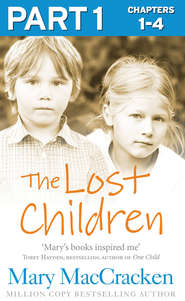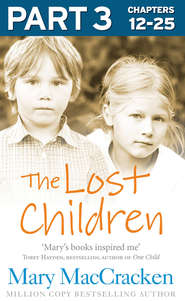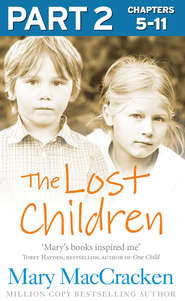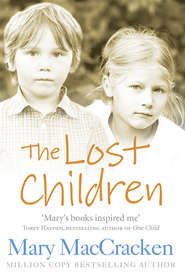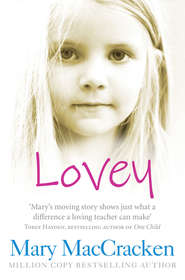По всем вопросам обращайтесь на: info@litportal.ru
(©) 2003-2024.
✖
City Kid
Настройки чтения
Размер шрифта
Высота строк
Поля
Then, “Volunteer?” she demanded more than asked. Five hands in the front row shot up. She chose two and sent them to the unused portion of the board. Then she read a problem out loud and the race was on. Who would finish first? Who would get it right?
I watched from the back of the classroom, never volunteering and hoping only for invisibility and sudden insight.
Ian Michaels, the boy in the seat next to mine, attended only every other day and never volunteered. Instead he silently scratched out the problem on a back page of his notebook. He was always right, always ahead of the blackboard people.
I decided I would try to do the same. I was beginning to understand some of the vocabulary now – matching sets, equivalency, the commutative property – but usually I got lost about halfway through the problem.
One morning Ian’s hand reached lazily across my paper, underlining the place where I had gone wrong, putting it right, then finishing the problem. After several days of this, I began to follow it through, while Ian dozed beside me, coming awake just before the end of class to circle those I had gotten right.
Dr. Kaiser was a believer in unexpected quizzes. She would sit wearing the same bland expression as we arrived each day, but twice a week, always on different days, after her “Good morning, class,” the scribble on the board was put there for us to solve on paper and hand in.
I began to wake in the middle of the nights from the sound of chalk on blackboard rattling in my dreams. My stomach was queasy on the morning elevator rides from the apartment to our cars.
“Are you all right?” Cal asked.
“I don’t know,” I said. “I’ve got a sixty-eight average and I dream about Mrs. Kaiser.”
Now Cal, too, studied the associative, distributive, and commutative properties, shaking his head, saying almost inaudibly, “This is math?” Cal was an engineer and inventor with over eighty patents. If he had trouble understanding Background of Mathematics I, how could I ever hope to get it straight?
I was okay in my other courses, averages in the nineties, but I wasn’t at all sure I would pass Background of Mathematics I.
I said so to Ian Michaels.
He opened his eyes slightly and looked at me through half-raised lids. “No problem,” he said between yawns. “Just copy my answers on the final. Then go back and mess up enough to get what you need.”
He closed his eyes again.
Cheating. He was suggesting that I cheat.
I knocked my sneaker on his boot. “That’s cheating,” I said.
His eyes stayed closed. “No shit,” was his nearly inaudible comment.
I wasn’t sure how to interpret this. I sat silently drawing circles on my notebook, watching the others file into class.
Everybody cheated. This was my first exposure to the marketing of papers. All the various societies and clubs on campus had a file of papers for every course, going back over several years. This was supposed to be a secret, but unless you were considered the type that would rat, the availability and cost of papers were discussed openly. Students mocked professors for giving an A to a paper that had earned only a B two years before. Copy machines made it possible simply to “rent” a paper for a day, copy it, return it, and then, depending on audacity and/or willingness to risk, either retype it or simply hand in the copy, saying you were keeping the original for your files.
Did anybody ever get caught? Not that I knew. Did the professors know what was going on? Again, not that I knew. But somehow the fact that it was happening contaminated the atmosphere. There was an “I’ll get away with as much as I can” philosophy among a large group of students.
The environment was so impersonal that the students often reminded me of little children with their hands in the cookie jar, wishing desperately that someone would catch them, just so they’d know someone cared.
Adapted Phys Ed was a two-credit course, which meant that we met only three times a week. As if to make up for this, Mrs. Hogan assigned twice as much work as any other teacher. Each class ended with a lengthy new assignment, and a moan from the students. Mrs. Hogan had graduated from Union State five years earlier. It was as if she were saying, “In my class, you’re going to work for those two credits.”
I admired her spirit, but wished she had a subject closer to my work. One of her favorite assignments was to ask us to write twenty abstracts on twenty different physical education articles. I spent hours in the library. Locating the article was a major problem in itself; often the one needed issue was missing from the stack. Then I spent more hours reducing articles on wheelchair volleyball and adapted jungle gyms to short abstracts, and still more hours typing them up. Where were the children? What was I doing here?
We were assigned to demonstrate before the class a “phys ed technique” that would be useful with “special children.” I could not do this. I had taught Rufus to swim, Hannah to ride a bike, Brian to climb a mountain, but I could not bring myself to stand before those forty nineteen-year-olds and put on a demonstration.
An old shyness returned, and for the hundredth time I thought, “I cannot do this. I cannot stay here in these classes for two whole years, while the children are out there.”
Cal put his arms around me in the middle of the night, and then wiped my tears. Neither of us spoke.
The next morning I wrote a letter to Mrs. Hogan asking if I could substitute a paper or else more abstracts for the demonstration. Perhaps because of my age, the letter came back. “Permission granted for substitution of twenty abstracts for class demonstration.” Back to the library.
If only I had known about Luke then.
Chapter 2 (#u042f5711-346d-5f23-a1b5-d9f6af79f374)
Our final math exam was on December 20. I was later than usual and I could feel nervousness building as I inched the car along the highway. It was snowing lightly and snow combined with Christmas shoppers made travel slow. I finally reached the college parking lot, found a spot heading downhill, and then walked rapidly across campus, quiet and beautiful under the fresh cover of snow.
For once, Ian Michaels was in his seat before I was. We always sat in the same seats. I don’t know why, but it was the same in all my classes. There was some slight juggling and changing the first week. After that we returned as though programmed to the same seat each day.
I hesitated inside the doorway for a minute. Maybe I should take another seat. Maybe I couldn’t resist looking at his paper, with the problems worked so simply, so elegantly, so clearly once I saw him do it Ian, I thought, whatever I have learned in this class, I’ve learned from you.
I sat down in my regular seat next to him. He opened his eyes to half-mast and winked at me.
“Listen,” I said, the wink catapulting nervousness into annoyance. “Keep your answers to yourself. I can do this on my own.”
The eyelids lowered. “Sure, lady.”
Thirty minutes later, Ian had handed in his paper and was gone. Forty-five minutes later, everybody was gone but me. On the hour, Dr. Kaiser announced, “Time’s up. Pass the papers to the front, please.” There was no one there to pass to. I carried my paper to her desk.
A week later, Dr. Kaiser stood in front of us. “I will announce both your exam grade and your final grade. Anyone who wishes to see his paper may request it after class. Barker, Frank – exam eighty-six, final grade eighty-two. Cavaluso, Florence – exam sixty-five, final grade seventy-eight.”
I studied my notebook, wondering how far Dr. Kaiser would go. Would she read the failures?
“Mann, Anita – exam forty-eight, final grade fifty-two.”
She would. She was – and she was already to the M’s. Could my stomach really churn like this over a math grade?
“Michaels, Ian – exam ninety-eight. Congratulations, Mr. Michaels. Final grade ninety-six.”
What was the matter? Where was MacCracken? MacCracken came before both Mann and Michaels.
“MacCracken, Mary. I always leave the Mc’s and Mac’s till the end of the M’s.”
She pinned me with her eyes. The others turned to look. Ian Michaels’s eyes were closed. My stomach rumbled beneath my jeans. Say it. Would you just say it and get it over with?
“MacCracken, Mary – exam eighty-eight, final grade, eighty.”
I passed! I not only passed, but a B! Exultation flooded through me. How could I care so much about a math grade? I felt foolish, but anyway, I wouldn’t have to take this course again. I did it! We did it!
Ian Michaels’s boot nudged my sneakers. Eyes half-opened, he gave me his accolade before lowering his lids once more. “Way to go, MacCracken.”
The second half of my junior year was still filled with required courses, but the ordeal of scheduling and registration was a little easier the second time around. I was getting to know most of the professors in the special ed department by name and/or reputation and that helped.
“Have you had Bernstein yet? Well, don’t if you can help it. He’s a pig.”
“Jones? A good lady. Marks hard, but knows her stuff.”






